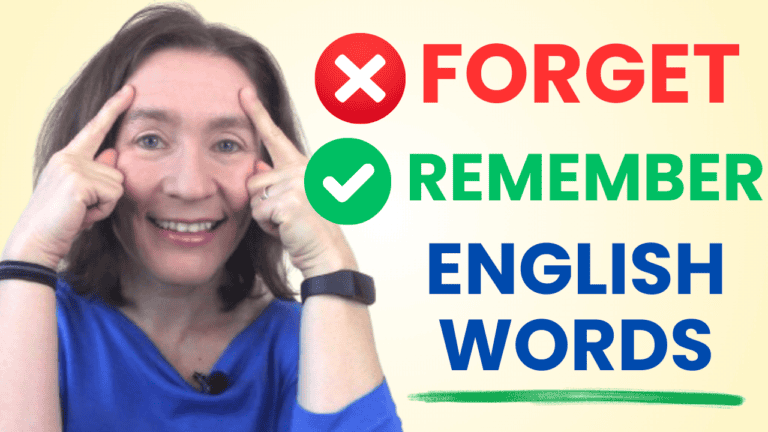Download: Text & Quiz / Audio
(Right-click each link and select “Save as…”)
This is our final lesson about vocabulary mistakes, and today I’ll teach you about some errors that I and my teaching team have found very frequently when correcting students’ homework.
If you’re interested in getting personalized feedback and corrections on your writing, you can join our Advanced English Grammar Course or our Reading Course, and select the option with teacher feedback.
Error #108 – Actually / Currently
The first mistake is using actually when you should say currently – for example, if someone asks a student, “Where do you work now?” and they say, “I actually work at a university.” This is incorrect.
Currently means “now, at the present moment.”
- The unemployment rate is currently 8%.
(the rate right now) - I’m currently taking a course with Espresso English.
(I’m taking a course now)
Actually means “in reality,” and it is often used to make corrections:
- “You’re from Brazil so you speak Spanish, right?”
“Actually, Portuguese is spoken in Brazil.”
(making a correction) - This article claims that unemployment is at 5%, but it’s actually 8%.
(= the real/true rate)
Error #109
Don’t say:
- I need to finish the project until Friday.
Say:
- I need to finish the project by Friday.
When talking about with a time in the future, by is used for one specific event, and until is used for a continuous event. “Finishing the project” is a single moment in time (one specific event) so we use “by Friday” in this case.
Here’s an example with until: “Can I stay at your house until Friday?” In this case, the action of “staying at your house” is a continuous action that covers ALL the time from now to Friday.
Here are more examples:
Use by if a single event will happen before that point:
- I will send you the information by Friday. (= before Friday)
- Our guests will arrive by 6:00. (= before 6:00)
Use until if a continuous event will continue and then stop at that point:
- I’ll be working on the project until Friday.
(= continuously until Friday; I will stop working on Friday) - Our guests will stay until 9:00.
(= continuously until 9:00; they will leave at 9:00)
Error #110
Don’t say:
- My roommates went out, so I’m home only.
Say:
- My roommates went out, so I’m home alone.
Alone means “by yourself” – there is nobody else with you:
- I like to take long walks alone so that I have time to think.
- He got up and left the restaurant, leaving me alone at the table.
Only means “just one” and can be used with people, objects, or actions. After the word only, we must have a person, object, or action.
- Dana was the only student who understood today’s English lesson.
- I have only one pair of sunglasses.
- I didn’t have a lot of money, so I only bought this T-shirt.
We also have the word lonely meaning “feeling sad and isolated” – it is a negative emotion.
- I was lonely on my first day of class because I didn’t have any friends.
- She can’t stand being single; she says she feels lonely without a boyfriend.
Error #111
Don’t say:
- I sent the letter two months before.
Say:
- I sent the letter two months ago.
- I sent the letter two months back. (informal)
Ago and back (informal) are used for past times from the present moment:
- I graduated from high school ten years ago.
(ten years in the past from today) - We sent the package three days ago.
(three days in the past from today) - I moved here about five years back.
(informal – five years in the past from today)
Before and earlier are used for past times from another time in the past.
Here are some examples:
- Yesterday I missed my train. I got to the train station at 7:10, but the train had left ten minutes before. (or ten minutes earlier)
(= at 7:00, ten minutes before I got to the train station yesterday) - I was very happy when I got this job last June, because I had lost my previous job six months before. (or six months earlier).
(= six months before last June)
Error #112
Don’t say:
- I have so wonderful friends.
Say:
- I have such wonderful friends.
- My friends are so wonderful.
The rule here is simple:
- SO + adjective
- SUCH + adjective + noun (object / person described)
Compare these sentences:
- Their dog is so cute.
- They have such a cute dog.
- Her kids are so obedient.
- She has such obedient kids.
Error #113
Don’t say:
- I invited all the class to the party.
Say:
- I invited the entire class to the party.
- I invited the whole class to the party. (more informal)
Use all with plural countable nouns to mean 100% of many things:
- All the students in the class have computers.
- All the necklaces in this store are expensive.
Use whole or entire with singular countable nouns to mean 100% of one thing:
- I ate the whole/entire pizza.
= 100% of one pizza. - I finished reading the whole/entire book in three days.
=100% of one book.
Here are more examples that show the difference between all and whole:
- I ate the whole cake.
= 100% of one cake. - I ate all the cakes.
= 100% of many cakes - The whole house is messy.
= 100% of one house. - All the houses are messy.
= 100% of many houses
Coming back to our original example, we invited the class – one class. So we say I invited the whole class / the entire class.
If we wanted to use the word students, plural, then we could say I invited all the students (many students). But class is singular so we say the whole class or the entire class (not all the class).
This brings us to the end of our section on vocabulary – next, we’ll dive into the most common spelling errors. Go ahead and take the practice quiz to review what you’ve learned in this lesson. Bye for now!










